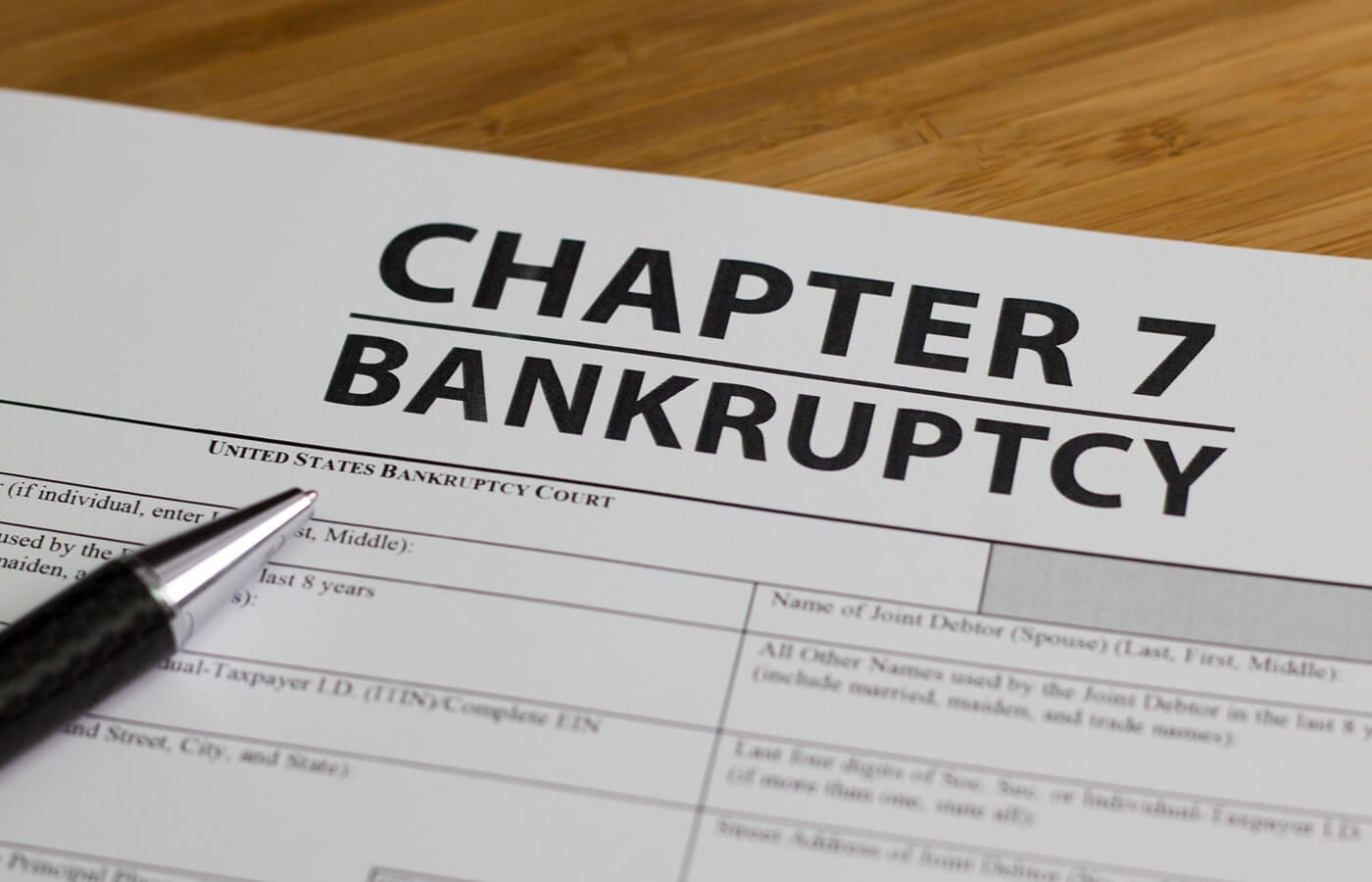Are you dealing with very serious debt and considering bankruptcy? In this post, I am going to walk you through Chapter 7 bankruptcy step by step.
If you are in financial trouble, a Chapter 7 bankruptcy is a good way to get rid of your unsecured debts. When you are constantly anxious and depressed about mounting debts. Chapter 7 bankruptcy can help you to start a new fresh and worry-free life by clearing out your debts.
Because of these reasons now, when most people think about the bankruptcy process or going through bankruptcy. It’s pretty much Chapter 7 bankruptcy they think of. At least it is the most ideal bankruptcy filing for most people.
I will give you a clear understanding of Chapter 7 bankruptcy and if it’s right for you.
We will also go through other available bankruptcy filings briefly.
How does Chapter 7 bankruptcy work?
Chapter 7 bankruptcy is often referred to as “outright” bankruptcy or “liquidation” bankruptcy. Because Chapter 7 Bankruptcy is a bankruptcy liquidation, in which the trustee takes all your assets and sells any non exempt assets. Let’s get into it in comprehensive and easy to understand terms.
Chapter 7 bankruptcy is applicable for low-income individuals. There are different chapters out there for those who do not qualify for chapter 7 bankruptcy. Chapter 11 is usually reserved for companies and corporations. If you are a farmer or commercial fisherman you can also look into chapter 12 bankruptcy.
Chapter 13 Bankruptcy is a personal restructuring. It is ideal for high-income individuals. 90% of people file for chapter 7 bankruptcy. Most individuals are either looking for chapter 7 or chapter 13 bankruptcy.

The idea behind chapter 7
Chapter 7 bankruptcy is great and extremely powerful in two ways.
This bankruptcy filing is really great at getting rid of unsecured debts.
What Are Unsecured Debts In Chapter 7 Bankruptcy?
Unsecured debts are typically things like medical bills, unpaid credit card bills, personal loans, etc. Basically any type of debt that doesn’t have any collateral or property attached to it. So when someone walks into my law office and seeks to file bankruptcy in chapter 7. The first thing I do is divide their debts into two groups.
We have above mentioned unsecured debts such as credit cards, medical bills, personal loans those types of things. And then we have their secured debts. The types of debts where there is property attached to it. Such as home loan, car loan, boat loan, RV Loan, etc. Anything that has property attached to it. I put that in another category. The reason I do so is that in the Chapter 7 bankruptcy filing process, the court treats secured debts and unsecured debts quite differently.
Unsecured credit card debts, medical bills, personal loans, and other debts are usually discharged. It means they are removed during the chapter 7 bankruptcy filing process. Secure debts, such as mortgages and car loans, are usually not discharged. Unless you wish to surrender the asset.
So essentially if you want to keep your assets you have a mortgage on. You can keep them as long as you make the monthly payments on them. You can get rid of your unsecured debts via chapter 7 bankruptcy. You will not be able to save your house though. If you fail to make monthly mortgage payments on the house.
Your certain properties are exempted by law in chapter 7 bankruptcy.
One of the most important questions when applying for Chapter 7 bankruptcy is whether you will be able to retain your property. Another great thing about chapter 7 bankruptcy is some of your essential assets are exempt from bankruptcy. Most essential assets are protected under various exemption laws.
One thing to note here is Iowa has opted out of the federal bankruptcy exceptions defined in the U.S. Bankruptcy Code. You can only use Iowa’s state law exceptions. Many of Iowa’s exemptions have a monetary limit. Those restrictions apply to a debtor’s equity in exempt assets, not the market value of the property. The difference between a property’s market value and any debts secured by it is referred to as equity.
The courts going to look to see that are there any assets that you have, that can be liquidated to pay off your creditors.
For Example, Jane owns a $12,000 car, but she still owes $6,000 on it. Since she has $6,000 in equity in the car, she can keep it in a Chapter 7 bankruptcy in Iowa.
The case trustee will sell a debtor’s property if the equity is greater than the exemption cap for that property. The debtor, on the other hand, would be entitled to a part of the selling proceeds equal to the exemption cap.
Let’s revisit our example again. Let’s say Jane only owes $4000 on her car. So her equity in the car is $8000. It is greater than the exception limit of $7000 for one vehicle in Iowa. Her car can be liquidated to pay off her unsecured debts. However, she will be entitled to receive $7000 from the state which is an exception limit.
So you need to be able to look and make sure you’re not gonna lose anything if you are looking into chapter 7.
You can check out the full list of Iowa chapter 7 bankruptcy exemptions HERE.
You can also make an appointment with me to discuss the full details and procedure for filing chapter 7 bankruptcy.
I have helped over 1000 people to get their lives back on track in the last forty years by filing for Bankruptcy in Iowa. Chapter 7 bankruptcy in Iowa gives a person a fresh start in life.
Make an appointment today to know whether you qualify for chapter 7 bankruptcy and which of your debts can be discharged. I provide a FREE consultation via phone or in person.

Which unsecured debts are dischargeable in chapter 7 bankruptcy?
Most of the unsecured debts are going to go away through chapter 7 bankruptcy filing. However, there are certain unsecured debts that don’t go away in bankruptcy.
There are certain debts like taxes, which are given priority status. There are some debts that are called domestic support obligations. These are things like alimony and child support. Those debts are not typically dischargeable through bankruptcy. Most student loans are not dischargeable in chapter 7.
The process of filing chapter 7 bankruptcy is a lot of paperwork. Currently, in 2021 it’s anywhere from 70 to 90-page document. On this document, you need to provide your accurate financial information that’s filed with the court.
It’s very important that you disclose everything and be truthful in your documents. It is a crime to lie on this document and will get you in legal trouble. You need to be very careful and make sure you are not forgetting anything.
